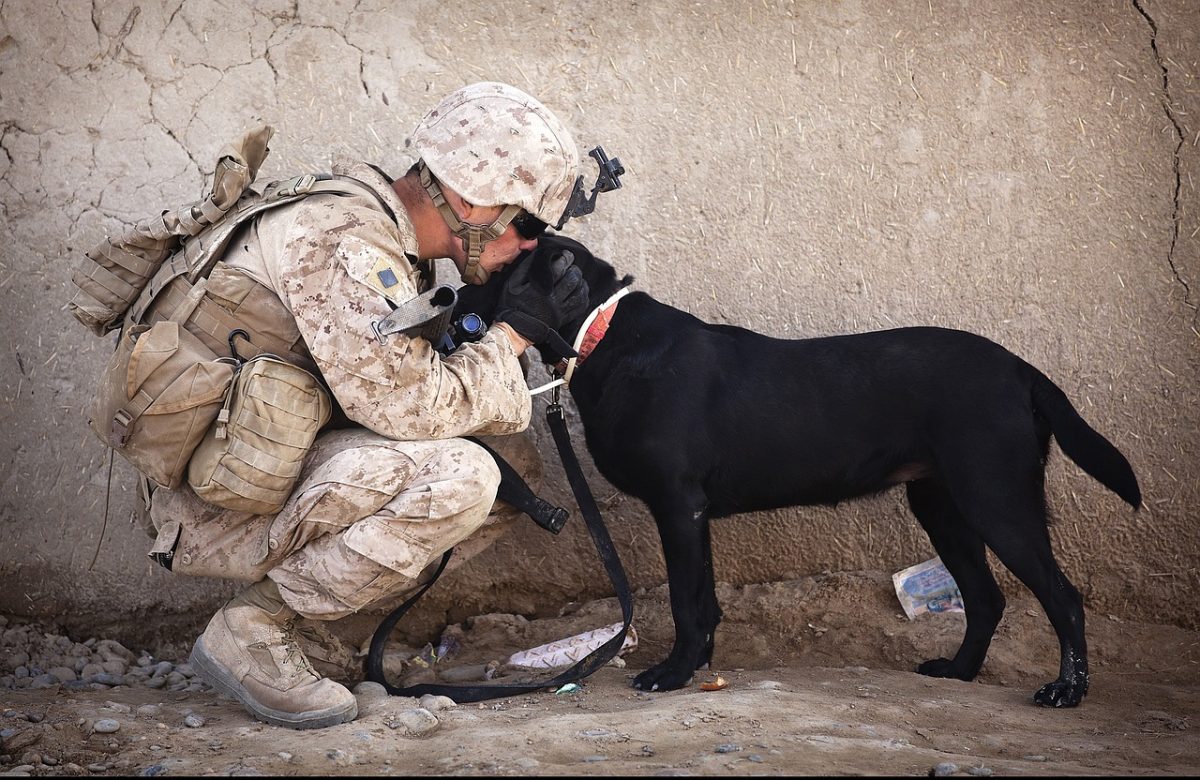
For the majority of veterans, coming back home means dealing with symptoms of post-traumatic stress disorder (PTSD). You may find it challenging readjusting to normal life outside the military. Or you’ll likely to find that you’re always on edge, feeling emotionally numb and disconnected from those who were once close to you.
But, regardless of how long these feelings last or how isolated you feel, it’s crucial to know that you are never alone and there are tons of things you can do to get better. Acquiring service dogs for veterans with PTSD is one way to cope. These dogs are trained to help you when you’re experiencing the nightmares and flashbacks. Soon enough, they help you regain control. Here is everything you need to know about service dogs for veterans.
PTSD is an illness that can cause devastating effects on your life. The changes you encounter can result in significant impairments in your life. The United States Department of Veterans Affairs (USDVA) reports that vets who experience PTSD end up being developing other conditions including depression, alcohol, and drug abuse as well as anxiety. These come about because the veterans are unable to get psychological help. The problem is that these psychological disorders have life-threatening risks like drinking and driving, overdosing on drugs and self-harming activities. One survey found that 20% of suicides reported through the United States were committed by veterans.

If you are having a hard time after your military life, you should consider getting a service dog trained for veterans. There are organizations throughout the United States that train dogs specifically for the purpose of living with and helping veterans.
Training
Dog breeds are chosen for this role depending on their temperaments, structural soundness and ascertained lineage of healthy genetics. Many of these dog training companies acknowledge that not every dog that starts training gets to the end. These dogs are assessed every step of the way, so if they don’t meet certain requirements, then they are disqualified from the program. Also important to note is that just because a pooch is great at a certain task or makes an excellent companion, doesn’t mean that he’s a good fit for the program. Overall, the training program for these dogs differs from one organization to another.
Based on their training, service dogs can help in one or more ways. These include:
If you have been diagnosed with post-traumatic stress disorder and are considering getting a service dog, here are some programs you can consider.
It’s a dogs-for-veterans program dedicated to helping persons that have served their country. The organization is involved in training and placing guide dogs with veterans who experience low vision, PTSD, physical disabilities and hearing disabilities.
Their facility dogs are employed in the rehabilitation process of a number of military and VA clinics. Unfortunately, these dogs are not that cheap to train. America’s Vet Dogs reports that breeding, raising, training and placing an assistance dog could cost as much as $50,000. But despite these costs, the organization gives these dogs away for free! Ideally, the program operates using funds given by generous corporations, foundations, and businesses.
This organization operates on the slogan that the country owes a lot to military veterans. The company’s dogs are specially trained to offer emotional support to veterans with PTSD. Their dogs also receive training that makes them sensitive to wheelchairs and other aid equipment. Also, these dogs are able to detect anxiety disorder behaviors.
Pets for Vets trains dogs from animal shelters, making the training a win-win for the parties involved. Put simply; this training gives the dogs a second chance at better lives. In return, they give back by offering the best care to their veteran owners. The way their program works is that every pooch is matched to a particular veteran. Once a perfect match has been identified, the dog spends time in the home of a trainer, who teaches him basic obedience and other valuable behaviors. Later on, these dogs are handed over to veterans who can benefit from having companion dogs.
According to research, it’s been discovered that veterans who are matched to well-trained service dogs live much better lives. These dogs make excellent companions and help to alleviate the symptoms of PTSD, anxiety, and depression. In fact, some of these dogs purposely create distractions if they detect that your mind is drifting into a past traumatic event.
Plus, service dogs have superb social skills, and this helps to build up the veteran’s self-esteem and confidence. But most importantly, a service dog remains loyal and friendly to his veteran owner so that they never feel alone. Living a sad, lonely life is what causes most veterans fall into depression and sometimes even commit suicide.